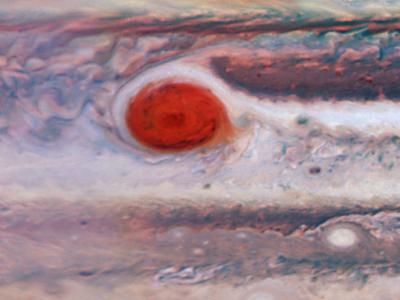Center for Integrative Planetary Science
The Center for Integrative Planetary Science (CIPS) was established in 2001 to provide a multi-disciplinary research home for the study of the physical origin and geochemical evolution of planets and planetary systems. Geophysics, astrophysics, meteorology, oceanography, chemistry, and biology are among the disciplines brought together at CIPS to find answers to our origins.
CIPS Research Faculty:
- CIPS Director and EPS Professor Michael Manga studies the evolution of planetary interiors and the interaction between the interior and surface environment. Recent projects have addressed the history of the Martian dynamo, the water cycle on Mars, and the tectonics of icy satellites in the outer solar system.
- Eugene Chiang is a Professor of Astronomy and Earth and Planetary Science (EPS). He works in theoretical astrophysics focusing on the origin and evolution of planetary systems, both here in our solar system and abroad in extrasolar systems. Interests include protoplanetary disks (fluid dynamics; radiative transfer; ionization chemistry); the formation of the first-generation planetesimals; the dynamics of planetary rings and circumstellar debris disks; and planetary winds.
- EPS and Astronomy Professor Burkhard Militzer uses computer simulations to understand the interior and evolution of giant planets. Materials in planetary interiors are exposed to extreme temperature and pressure conditions that cannot yet be reached with laboratory experiments. Instead, he relies on highly accurate first-principles computer simulations techniques. With these methods, he and his team recently explained why neon is missing from Jupiter's atmosphere and provided indirect evidence for helium rain in the deep interior of the planet.
- Astronomy and EPS Professor Imke de Pater uses radio, infrared (often with adaptive optics), and HST observations to study a variety of objects in our Solar System. Research highlights include: impacts and vortices on Jupiter, volcanism on Io, weather on Titan and the giant planets, ring systems, and comets.
- EPS and Astronomy Professor Raymond Jeanloz studies the nature and evolution of planetary interiors, as well as the properties of materials at high pressures.
- EPS Professor Bill Dietrich is seeking mechanistic, quantitative understanding of the form and evolution of landscapes as well as the linkages between ecological and geomorphic processes, and building tools to tackle pressing environmental problems. He is one of the house geomorphologists for the Mars Curiosity Rover mission.
- EPS Professor Bruce Buffett focuses on the dynamics and evolution of planetary interiors, including mantle convection, plate tectonics, and planetary dynamos as well as physical modeling of gas hydrates and consequences for climate change.
- Chemistry and EPS Professor Kristie Boering studies atmospheric chemistry and climate on Earth and other planets.
- Astronomy Professor Gibor Basri is a Co-Investigator on NASA's Kepler Mission to detect Earth-sized planets, and works on the stellar properties of planet-hosting stars.
- Astronomy Professor James Graham specializes in infrared instrumentation, large telescopes, and adaptive optics. He designed the Gemini Planet Imager (GPI) to take images of exoplanets.
- Adjunct Astronomy Professor Paul Kalas is an observational astronomer focusing on high-contrast, high-resolution imaging of dusty disks around nearby stars. In 2008, he led the team that captured the first image of an extrasolar planet around Fomalhaut.
Education
To prepare students for the increasingly interdisciplinary nature of science and technology, CIPS faculty offer programs and courses at both the graduate and undergraduate level. The planetary major within the Department of Earth and Planetary Science (EPS) was created for undergraduate students seeking cross-disciplinary training. At the graduate level, research opportunities with CIPS faculty members, extra-departmental guidance, and new multidisciplinary courses are being offered. Graduate students remain identified with specific departments, however, to ensure that they develop rigor in at least one specialty.
Communication
To stimulate multidisciplinary research and disseminate the new research findings of these diverse but related research groups, CIPS organizes informal workshops, colloquia, seminars, and discussion groups. Some recent topics include the origin, atmospheres, and interiors of Super-Earths, Results from NASA's Deep Impact Mission to Comet Tempel 1, Primordial Ice Reservoirs of the Solar System, and The SECCHI Experiment on the STEREO Mission.

